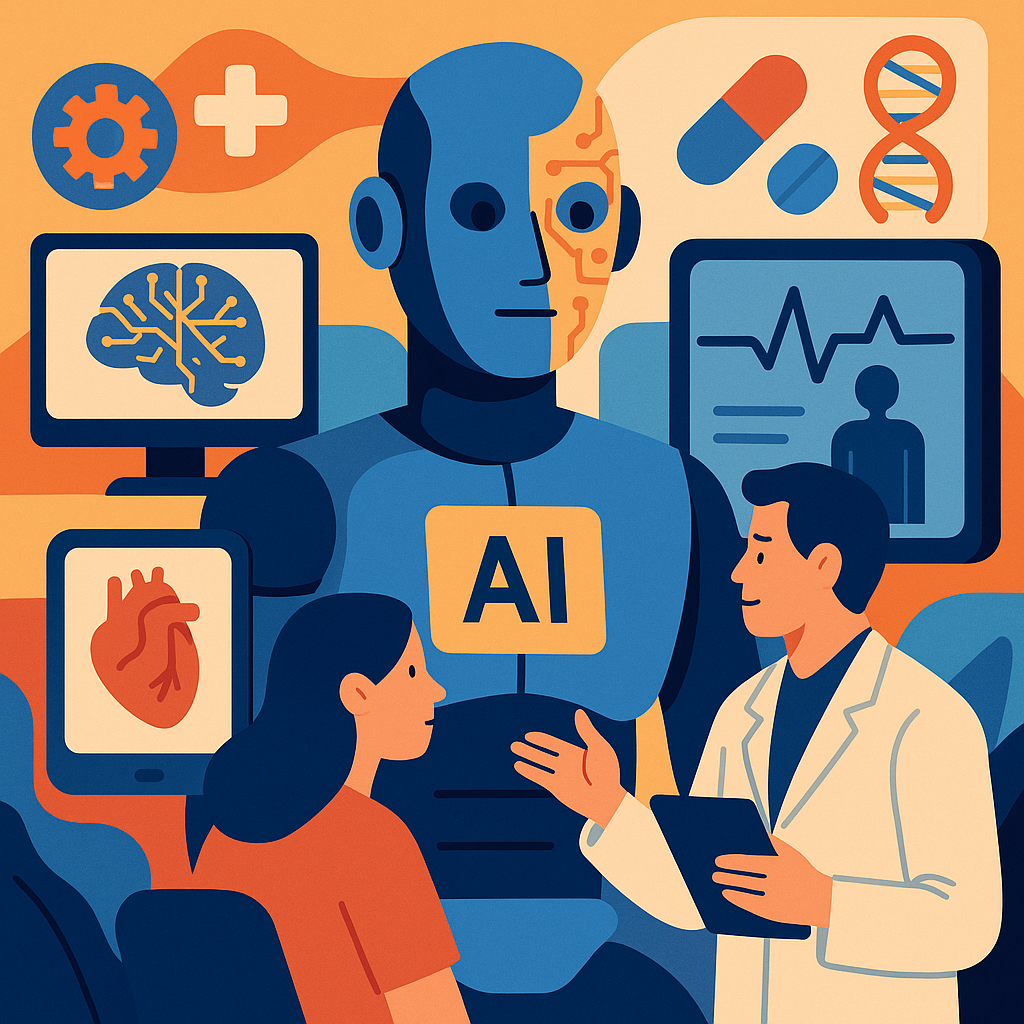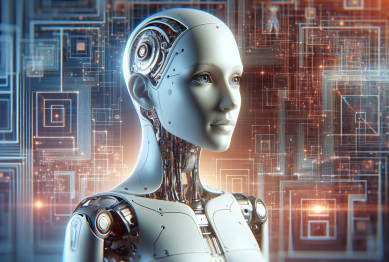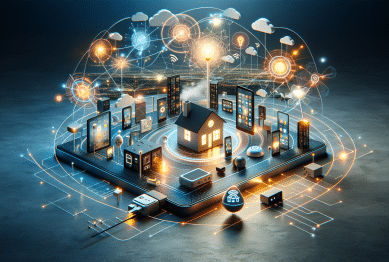Artificial Intelligence (AI) is revolutionizing healthcare in 2025, enhancing diagnostics, streamlining operations, and personalizing patient care. From AI-powered facial analysis predicting cancer survival rates to the FDA’s integration of AI tools for expedited drug approvals, the healthcare landscape is undergoing significant transformation. Innovations like ambient AI are reducing physicians’ administrative burdens, allowing more focus on patient interaction. With substantial investments and advancements, AI is poised to redefine healthcare delivery, making it more efficient and patient-centric.

The Role of Artificial Intelligence in Healthcare: 2025’s Transformative Trends
1. AI-Powered Diagnostics: Enhancing Accuracy and Speed
AI is significantly improving diagnostic accuracy and efficiency. Tools like FaceAge analyze facial features to predict cancer survival outcomes, outperforming traditional assessments. This technology enhances clinicians’ ability to make informed decisions, leading to better patient outcomes.Financial Times
2. Streamlining Administrative Tasks with AI
Administrative burdens are a major challenge in healthcare. AI solutions, such as ambient AI, are automating documentation processes, reducing physicians’ workload by up to 30%. This allows healthcare providers to dedicate more time to patient care, improving overall service quality.Time+2Wikipedia+2Business Insider+2The Washington Post
3. FDA’s Integration of AI for Drug Approvals
The FDA is adopting AI tools to expedite drug approval processes. By automating repetitive tasks, the agency aims to reduce the typical six to ten-month approval timeline, ensuring faster access to essential medications for patients.Reuters
4. AI in Predictive Analytics and Personalized Medicine
AI’s ability to analyze vast datasets enables predictive analytics, allowing for early disease detection and personalized treatment plans. This approach leads to more effective interventions and improved patient outcomes.LinkedIn+1infotainingyou+1
5. Remote Patient Monitoring and Telehealth
AI-powered remote monitoring tools are enhancing telehealth services, enabling continuous patient care outside traditional clinical settings. These technologies facilitate early detection of health issues and timely interventions, especially crucial in managing chronic conditions.
References:
- Financial Times. (2025). Scientists use AI facial analysis to predict cancer survival outcomes. Retrieved from https://www.ft.com/content/3ac60aaf-3b55-4f1c-858c-7b42b4cbd914Financial Times
- Reuters. (2025). US FDA centers to deploy AI internally, following experimental run. Retrieved from https://www.reuters.com/business/healthcare-pharmaceuticals/us-fda-centers-deploy-ai-internally-immediately-2025-05-08/Reuters
- The Washington Post. (2025). This technology is becoming beloved by doctors and patients alike. Retrieved from https://www.washingtonpost.com/opinions/2025/03/25/ambient-ai-health-care-artificial-intelligence/The Washington Post









